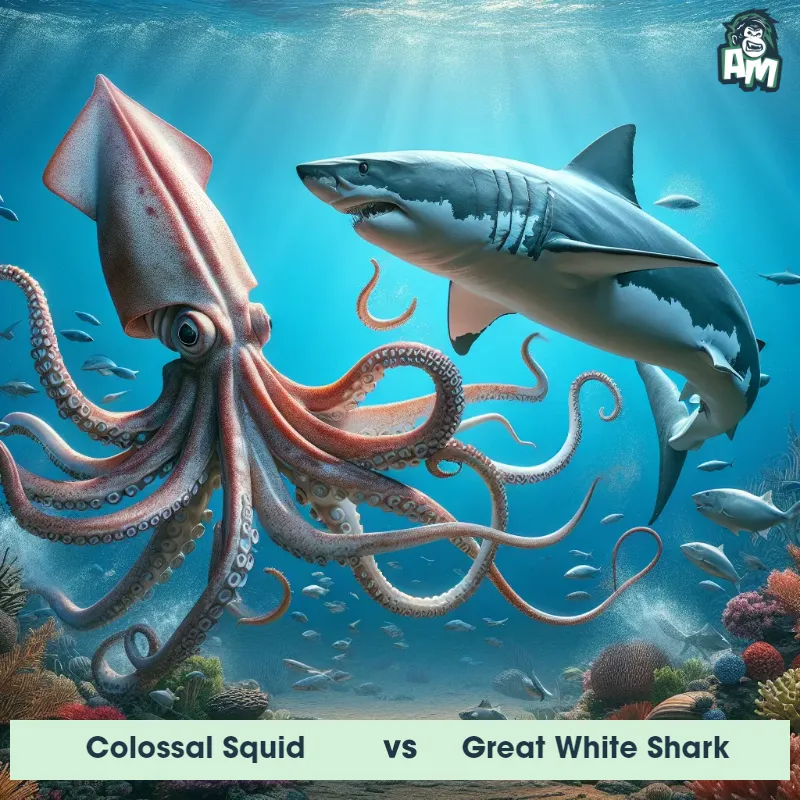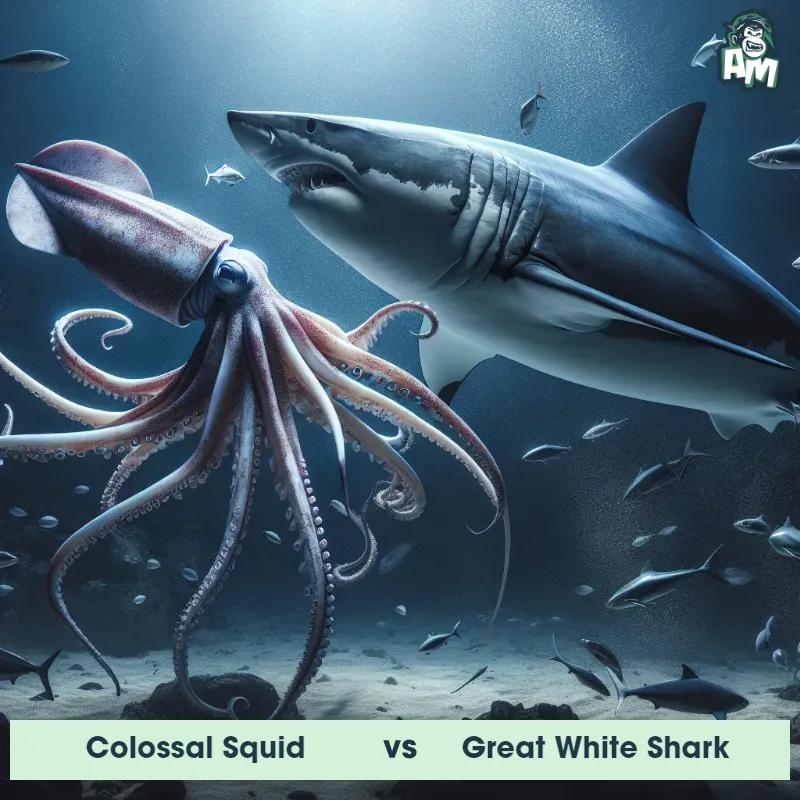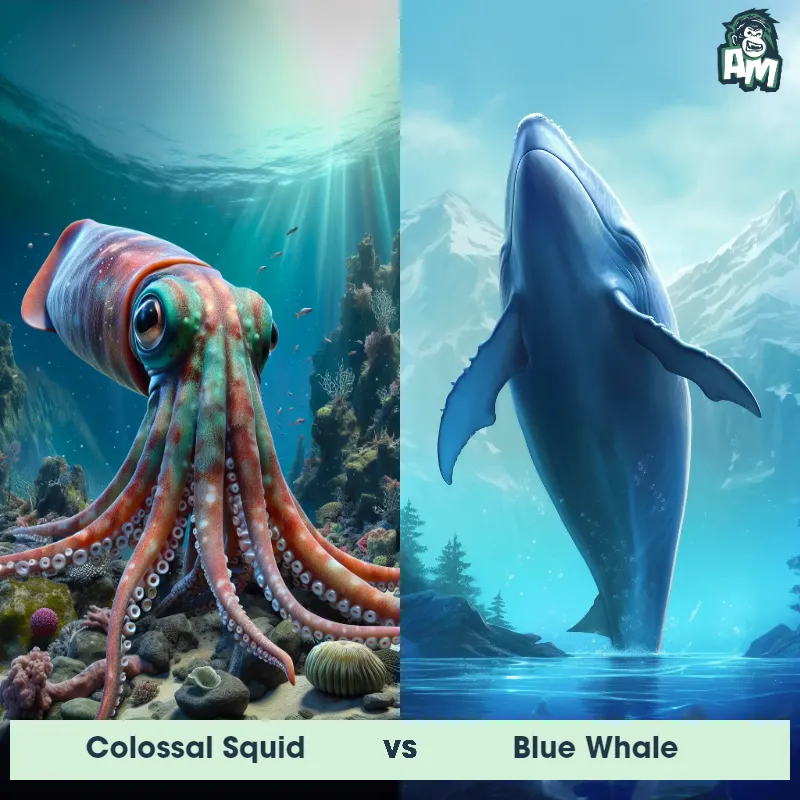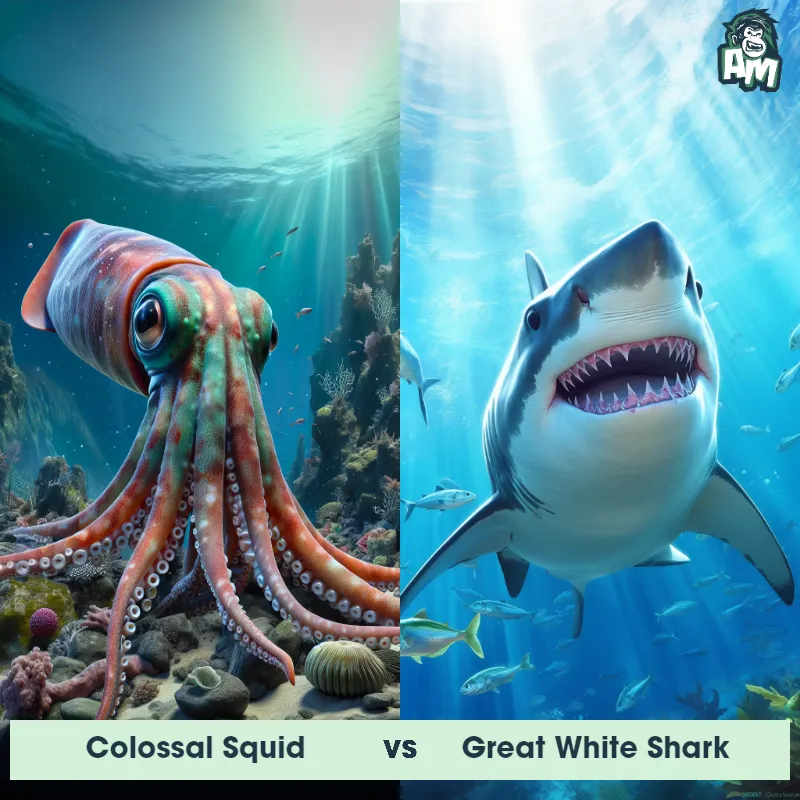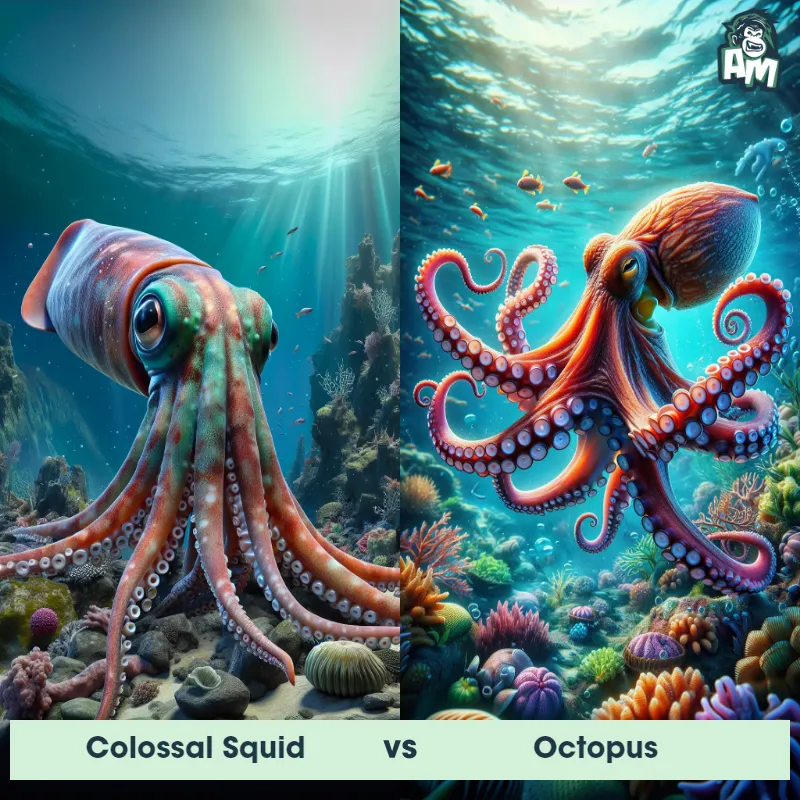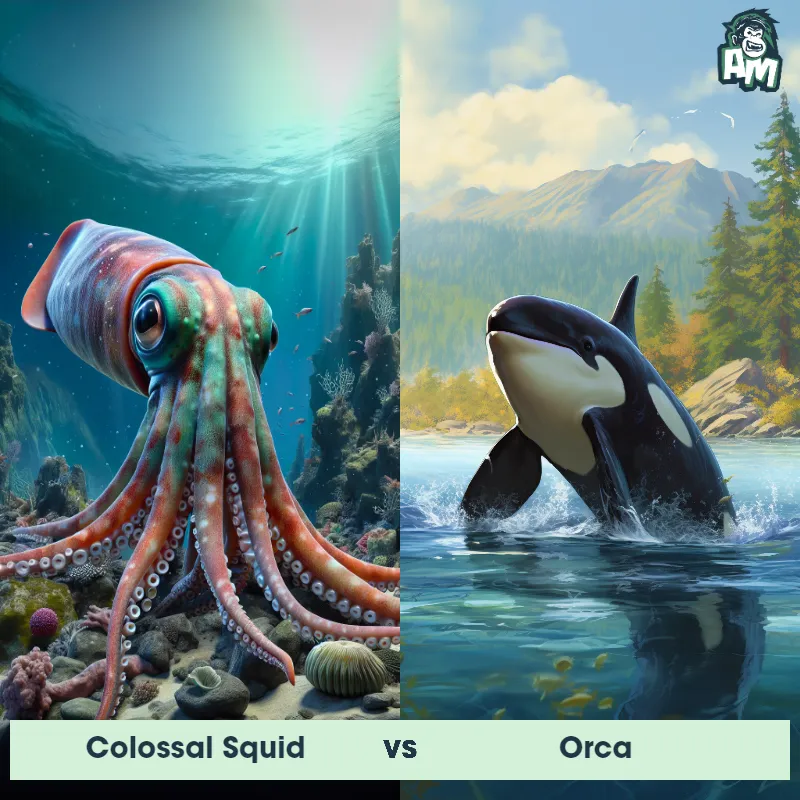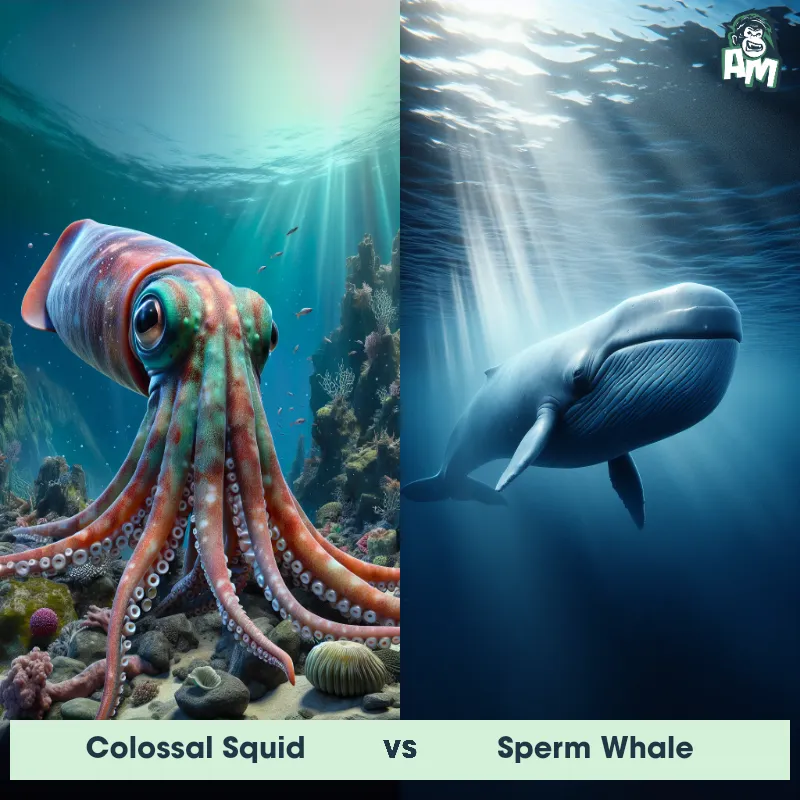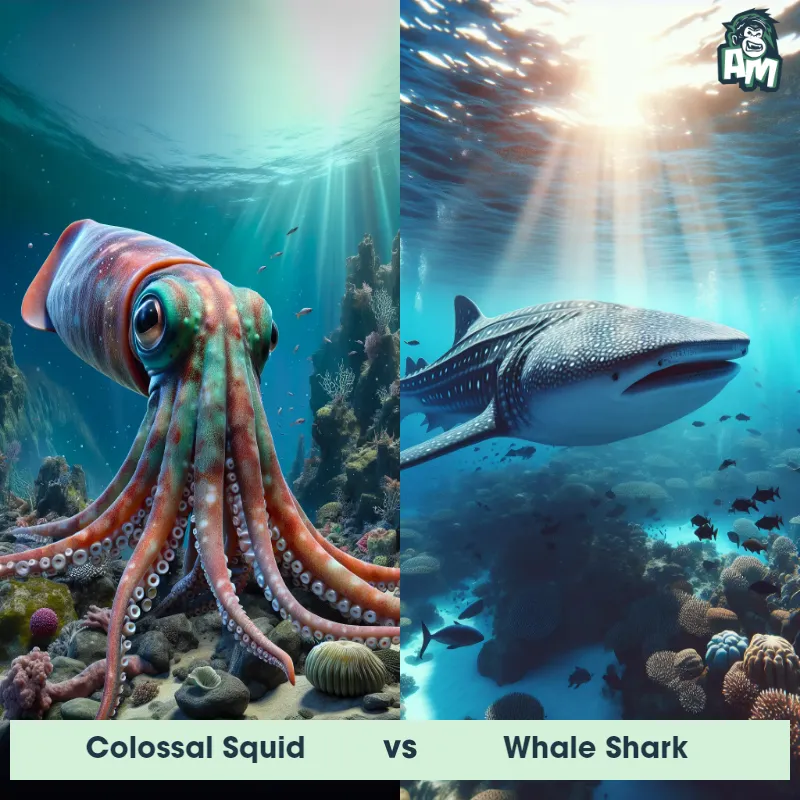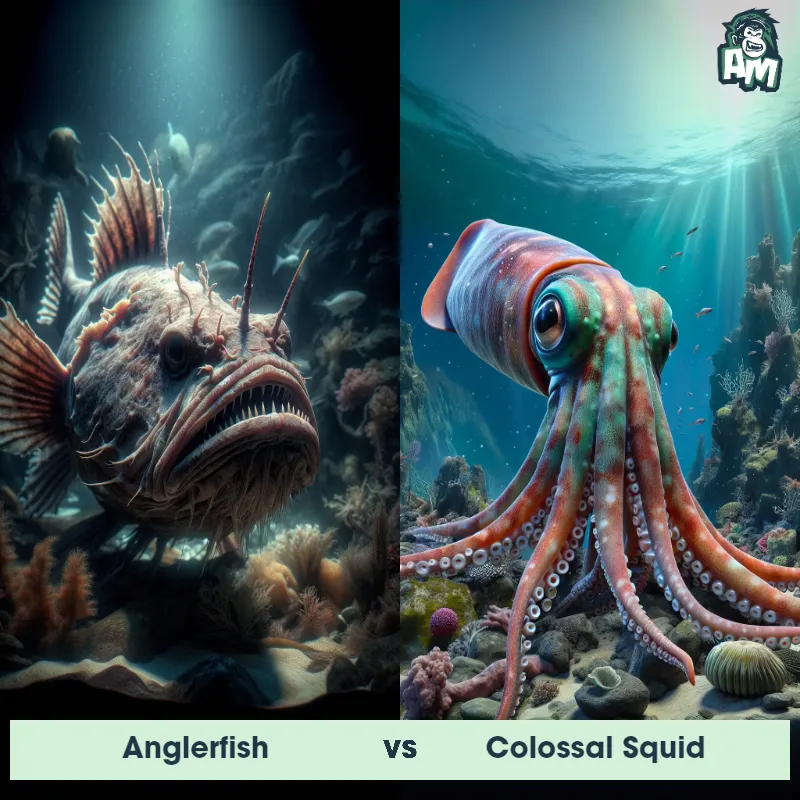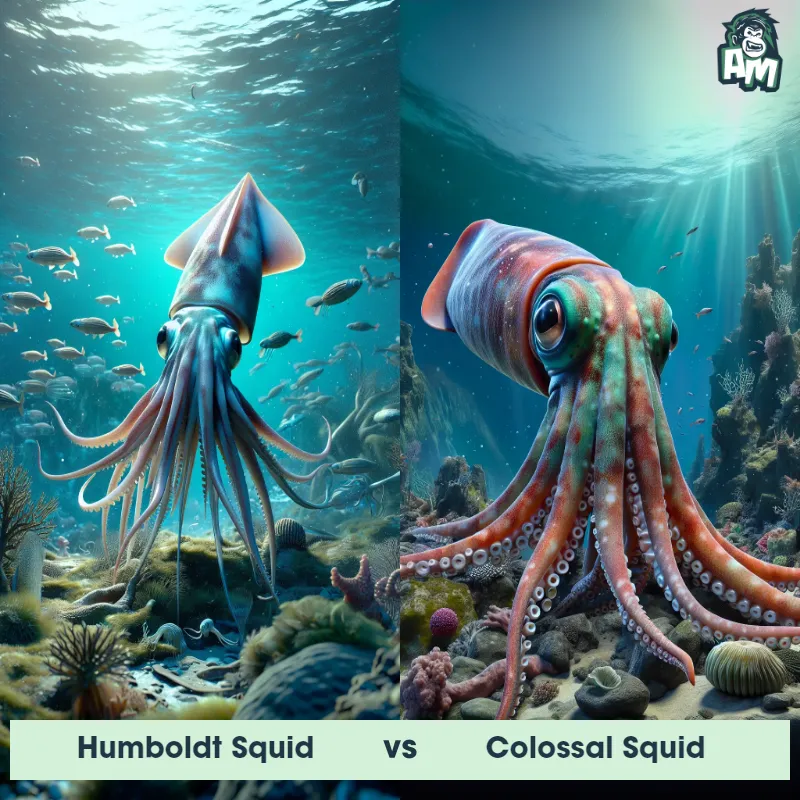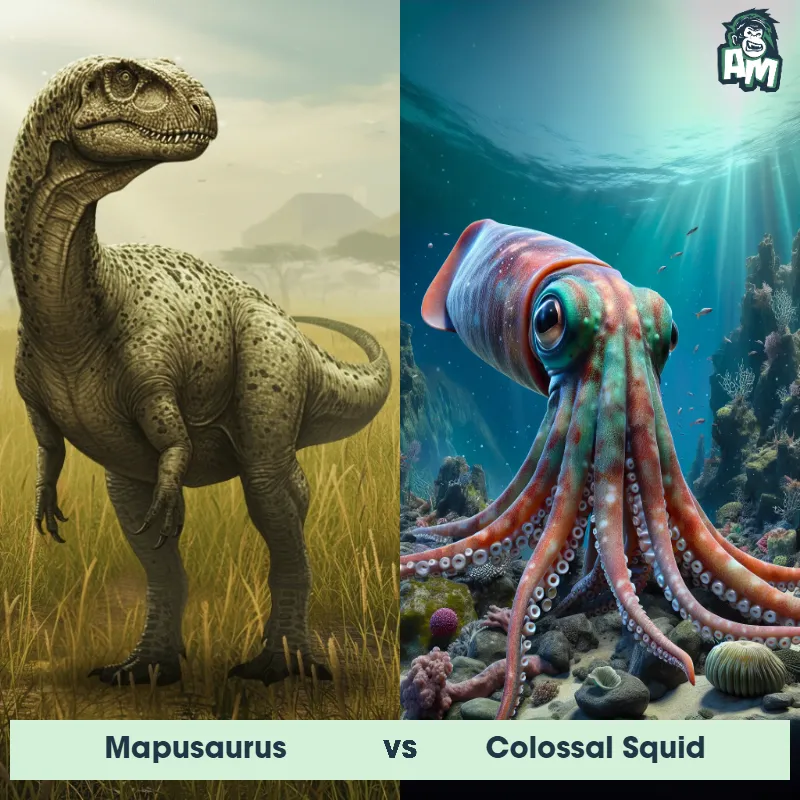The Colossal Squid
The Colossal Squid, also known as Mesonychoteuthis hamiltoni, is a mysterious and enigmatic deep-sea creature that inhabits the Southern Ocean. It is one of the largest known cephalopods, reaching lengths of up to 14 meters and weighing over 750 kg. This remarkable creature possesses the largest eyes ever discovered in the animal kingdom, measuring up to 25 centimeters in diameter. It has sharp, hooked tentacles and a fearsome beak, which it uses to capture and consume prey. The Colossal Squid is an elusive and highly intelligent predator that resides in the dark depths of the ocean, making it a fascinating and captivating creature to study.
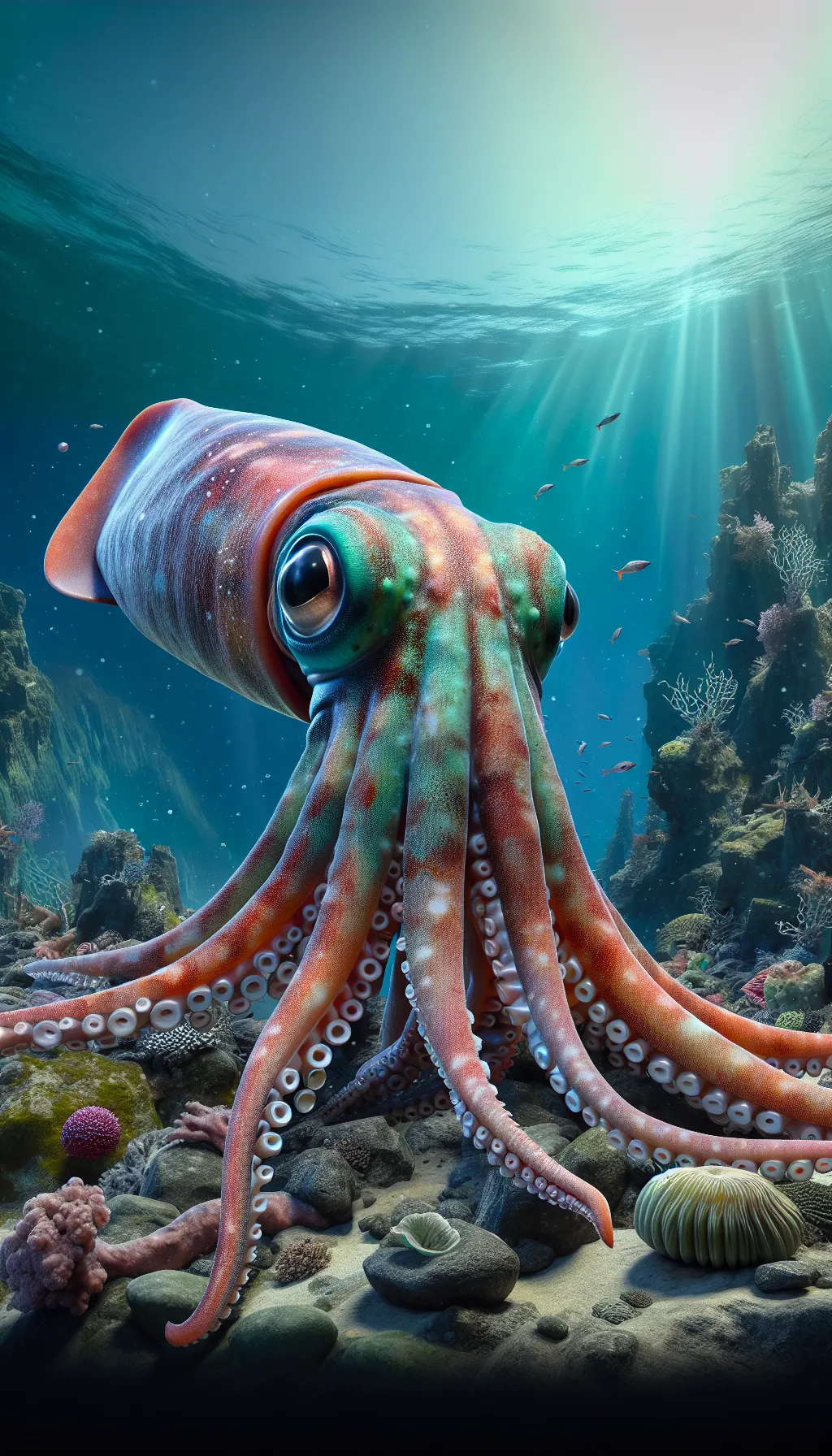
| Colossal Squid | |
|---|---|
| Size | Up to 46 feet (14 meters) |
| Weight | Over 1,000 pounds (454 kilograms) |
| Speed | NA |
| Key Strength | Powerful tentacles with sharp hooks |
| Biggest Weakness | Vulnerable to attacks on its soft body |
| Scientific Name | Mesonychoteuthis hamiltoni |
| Family | Cranchiidae |
| Habitat | Deep ocean |
| Geography | Southern Ocean |
| Diet | Fish and other squid |
| Lifespan | 3-4 years - 5 years |

The Colossal Squid
The Colossal Squid, also known as Mesonychoteuthis hamiltoni, is a mysterious and enigmatic deep-sea creature that inhabits the Southern Ocean. It is one of the largest known cephalopods, reaching lengths of up to 14 meters and weighing over 750 kg. This remarkable creature possesses the largest eyes ever discovered in the animal kingdom, measuring up to 25 centimeters in diameter. It has sharp, hooked tentacles and a fearsome beak, which it uses to capture and consume prey. The Colossal Squid is an elusive and highly intelligent predator that resides in the dark depths of the ocean, making it a fascinating and captivating creature to study.
Fun Fact: The Colossal Squid has the ability to change the color of its skin, which enables it to effectively camouflage itself in its deep-sea environment and remain undetected by potential predators or prey.
| Colossal Squid | |
|---|---|
| Size | Up to 46 feet (14 meters) |
| Weight | Over 1,000 pounds (454 kilograms) |
| Speed | NA |
| Key Strength | Powerful tentacles with sharp hooks |
| Biggest Weakness | Vulnerable to attacks on its soft body |
| Scientific Name | Mesonychoteuthis hamiltoni |
| Family | Cranchiidae |
| Habitat | Deep ocean |
| Geography | Southern Ocean |
| Diet | Fish and other squid |
| Lifespan | 3-4 years - 5 years |
Match Highlights
Colossal Squid Matchups
We use AI to simulate matchups between the Colossal Squid and other animals. Our simulation considers size, strength, and natural predatory behaviors to determine the most likely outcome.

Can't find the Matchup you want?
Create Your Own MatchupColossal Squid: Diet, Predators, Aggression, and Defensive Behaviors
What do Colossal Squids eat?
Colossal Squids primarily feed on deep-sea fish and other squid species. Their diet can also include lanternfish, large crustaceans, and other cephalopods. These massive creatures are known for their powerful beaks which they use to consume their prey.
Do Colossal Squids have any predators?
Adult Colossal Squids are believed to have very few natural predators due to their large size and formidable hunting abilities. However, there have been cases where sperm whales have been found with scars from battles with these massive squids, indicating that sperm whales may occasionally prey on them.
Are Colossal Squids aggressive?
Colossal Squids are typically not aggressive towards humans unless provoked. They are known to be elusive creatures that prefer to live in the deep ocean away from human contact. However, when threatened or attacked, they can exhibit aggressive behavior in self-defense.
Do Colossal Squids fight?
Colossal Squids are solitary creatures that do not engage in social interactions with others of their species unless it is for mating purposes. However, when faced with threats or predators, they are capable of putting up a fierce fight using their powerful tentacles and sharp beaks to defend themselves.
How do Colossal Squids defend themselves?
Colossal Squids have several defense mechanisms to protect themselves from predators. They have strong, muscular tentacles equipped with powerful suckers lined with sharp teeth-like structures known as hooks. These tentacles can be used to entangle and subdue threats, allowing the squid to escape or fight back.
What is the biggest weakness of Colossal Squids in a fight?
Despite their impressive size and strength, one of the biggest weaknesses of Colossal Squids in a fight is their vulnerability to injuries. Their soft body tissues and delicate skin make them susceptible to damage when engaged in physical battles with predators. Additionally, their slow movement on land and limited mobility can also hinder their ability to defend themselves effectively.
Fun Fact: The beak of the Colossal Squid is incredibly powerful and possesses the ability to easily slice through its prey, including other formidable marine creatures such as fish and even Sperm Whales.
Fun Fact: Although little is known about the reproductive habits of the Colossal Squid, it is believed that the females produce an enormous number of small eggs, which are encapsulated in gelatinous masses that float in the cold waters. This unique reproductive strategy ensures that the species has a high chance of survival in the harsh and challenging environment it calls home.



